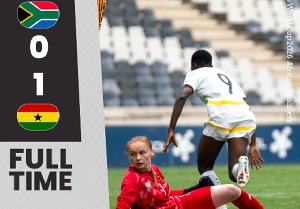Uncertainty over the application of new tax rates and rules outlined in this year’s fiscal budget has hobbled the plans of mining companies, Chamber of Mines chief, Toni Aubynn, has told the Business & Financial Times.
Despite receiving a written response to the new tax-measures from the chamber, the government is yet to invite miners to talks, he said.
The main uncertainty, according to him, surrounds the profit threshold upon which the proposed 10 percent windfall tax will take effect.
“There’s huge uncertainty; meanwhile, it’s a new year and companies have to plan. We want clarity and certainty, so that when we’re planning we know exactly what we’re planning for,” he said.
The 2012 budget hiked the industry’s corporate tax-rate by 10 percentage points to 35 percent, and said miners will be subjected to an extra windfall-profit tax of 10 percent.
The budget also announced that the capital allowance rate on declared profits, which allows companies to recover a fraction of their fixed-asset investments before taxation, will fall from 80% to 20% for five years -- effectively expanding the profit-base that can be taxed by the state.
Dr. Aubynn said the chamber, in its response, addressed the implications of the new measures for the industry.
“We drew government’s attention to the fact that this could possibly lead to a decline in investment. We pointed out that increases in gold prices should not be confused with increases in profits.
“We also took exception to some of the things said in the budget -- like the charge that there is a lack of transparency in the industry. We were very disappointed at that.”
The government, meanwhile, says it is pursuing a “fair and transparent sharing of the benefits and windfall gains from the exploitation of the country’s precious and irreplaceable natural resources.”
According to Finance Minister Dr. Kwabena Dufffour, the country “did not benefit at all” from the gains in commodity prices, especially gold, during the recent financial crisis when most metal prices peaked.
Duffuor also revealed the state is looking to review contracts with miners, a proposition that could throw up some hurdles given the existence of so-called “stability agreements” which contain a number of fixed clauses and conditions.
Mining companies, since the tax-measures were unveiled, have been deeply worried about the impact on their operations and future investments.
In the wake of the announcement, Gold Fields, the world’s fourth-largest gold producer, said that planned investments worth about US$1billion at two of its mines in Ghana were in danger of being cancelled.
While defenders of the tax-hikes point out that they are necessary to put Ghana on a par with other countries in the sub-region, Dr. Aubynn said that argument fails to consider the cost environments, which are different between the countries.
Nigeria already has a 10% windfall tax, and levies an industry corporate tax rate of 30%. In uranium-rich Niger, the corporate tax is 45% and royalties are levied at a rate of 5.5% of revenues – compared to 5% in Ghana.
But the Chamber of Mines boss said most miners in Ghana mine ore of low grade, which is costlier than the high-grade ore mined in neighbouring countries. Mining companies in Ghana also do more for their communities than others in the sub-region, he said.
Business News of Wednesday, 18 January 2012
Source: BFT












